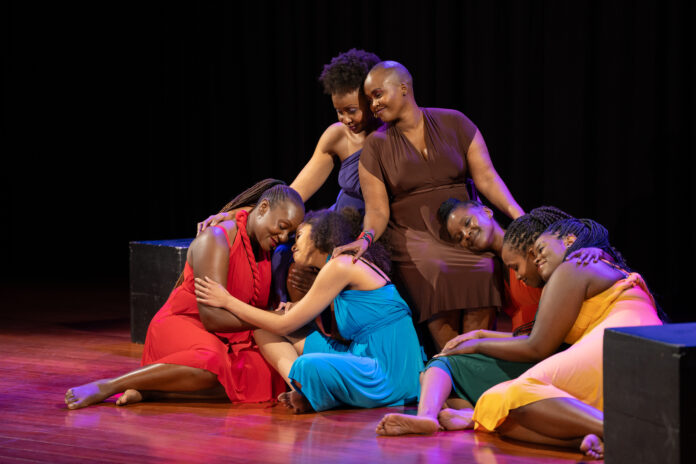By Winnie Kamau
Nairobi, Kenya: “Somebody almost ran off with all of my stuff, and I was standing there looking at myself the whole time!” This is one of the many evocative and deeply metaphorical lines in Ntozake Shange’s ‘For Colored Girls Who Have Considered Suicide/When the Rainbow Is Enuf’ symbolizing the loss of voice, dignity, erasure of experiences and personal agency that is often the reality of gender-based violence (GBV) survivors.
Nini Wachera a renowned actress along with other legendary Kenyan theatre and film stars; Melissa Kiplagat, Mbeki Mwalimu, Marianne Nungo, Tana Gachoka, and two Danish-based actors, Wanjiku-Victoria Seest and Rebecca Langley, have powerfully re-enacted the classical play that premiered in Kenya on the 23 November 2023, ahead of the activities set to commemorate the 16 days of activism against gender-based violence.
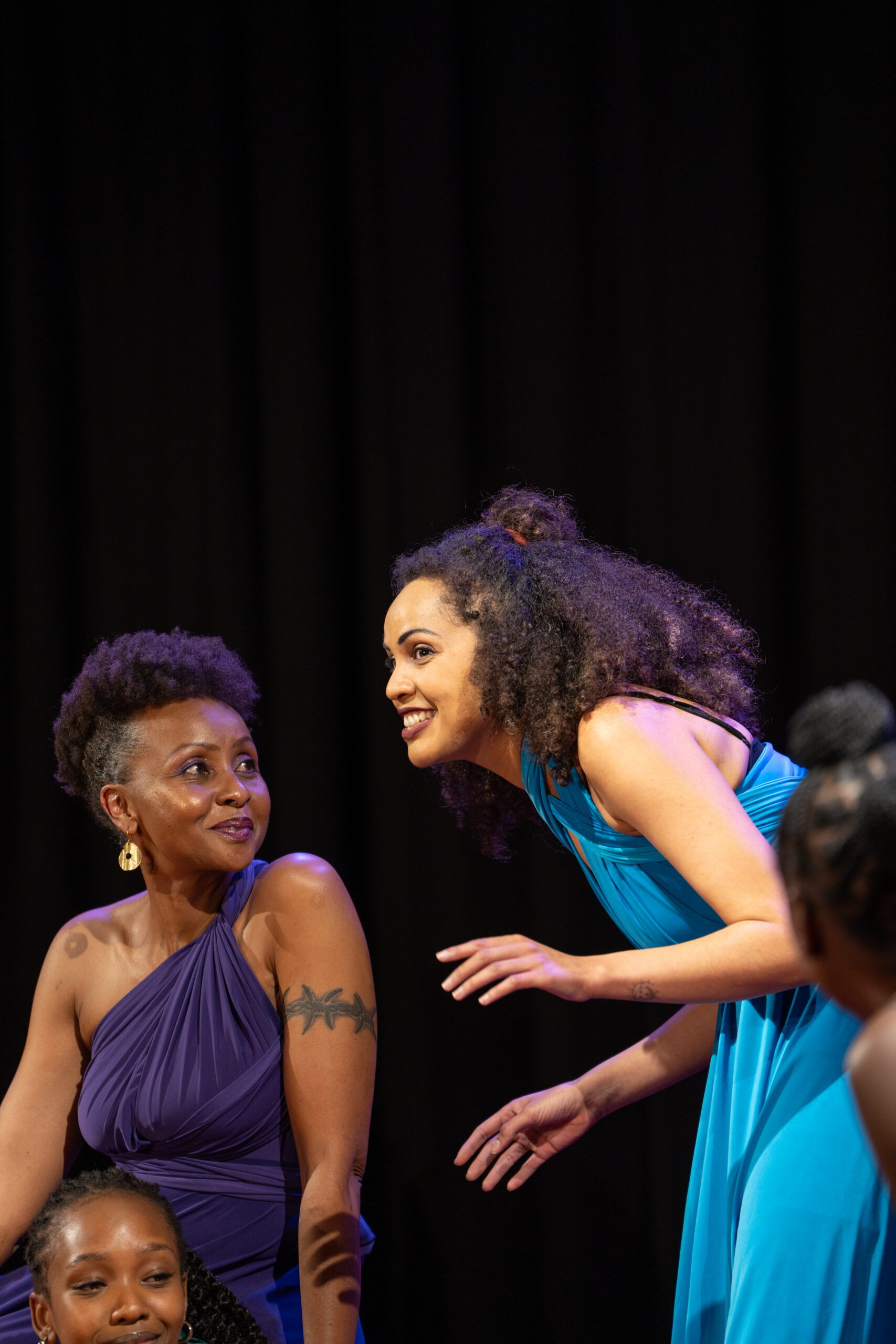 The play has become quintessential to the ensuing gender norms revolution in Kenya. In a country where more than 40% of women have experienced physical or sexual abuse, including intimate partner violence, and one in every five girls subjected to child marriage or female genital mutilation/cutting, the play aims to raise awareness about gender-based violence by shining a spotlight on its structural and systemic drivers.
The play has become quintessential to the ensuing gender norms revolution in Kenya. In a country where more than 40% of women have experienced physical or sexual abuse, including intimate partner violence, and one in every five girls subjected to child marriage or female genital mutilation/cutting, the play aims to raise awareness about gender-based violence by shining a spotlight on its structural and systemic drivers.
Collaborative Campaign
Spearheaded by the European Union in Kenya, the Embassy of Denmark in Kenya, and ACT: New Nordic Voices, as part of their collaborative Silenced No More campaign aimed at ending GBV in Kenya, the play presents interwoven stories of seven women, as they embark on a journey of interrogating their own silence through a series of poetic monologues and group performances.
The play has so far drawn a large and diverse audience with four performances in Nairobi including one at the University of Nairobi (UoN) to explicitly reach out to young people who are more vulnerable to GBV with staggering statistics to boot.
“One in every two girls, and one in every four men have suffered gender-based violence in a higher education setting,” says Prof Stephen Gitahi, Vice Chancellor, University of Nairobi (UoN).
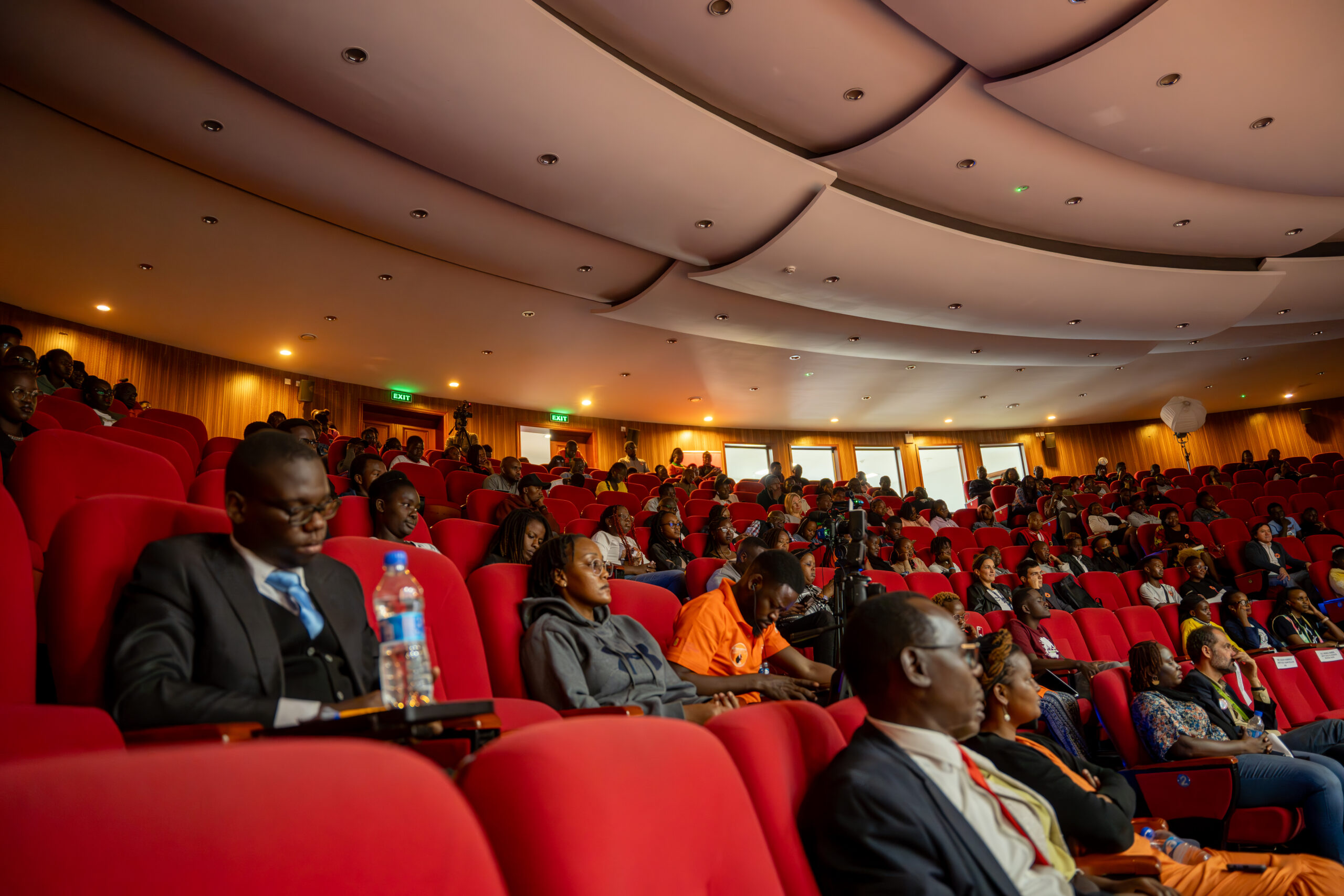 Three performances have been held in Kisumu, and two are scheduled to take place in Mombasa on 7-8 December 2023, as the curtain falls on 16 days of Activism, and sustained efforts to accelerate discussions, commitment and action towards Kenya’s agenda of ending GBV by 2026 expected to continue.
Three performances have been held in Kisumu, and two are scheduled to take place in Mombasa on 7-8 December 2023, as the curtain falls on 16 days of Activism, and sustained efforts to accelerate discussions, commitment and action towards Kenya’s agenda of ending GBV by 2026 expected to continue.
Interrogation of internalized Silence
Ms. Cheryl Williams who has directed its adaptation in Kenya, has commended the play for its ability to offer a starting point for introspection into people’s internalized silence, emphasizing that gender-based violence is a universal reality that cuts across culture, socioeconomic status, and religion.
Each performance is followed by audience reflections and a representative panel discussion that addresses emerging issues.
“The situation is dire as only one percent of funding globally goes towards alleviating GBV, and only 0.3 percent of Kenya’s national budget is dedicated to preventing and alleviating gender-based violence,” exclaims Sebastian Gatimu, Planning and Coordination Specialist at UNWOMEN.
“I felt the journey of a girl, a woman, and I picked on domestic and intimate partner violence,” says Ms Zipporah Nderitu, Senior Superintendent of Police and Police Advisor to IPSTC, and the first Kenyan to receive the prestigious 2023 International Association of Women of Police – ‘Prevention of Violence Against Women and Children’ award.
“I have resonated with every piece of the play, and wish every police officer could get an opportunity to experience it,” says Ms Nderitu whose pioneering work with PoliCare, is integrated by the National Police Service, providing the much-needed beacon of hope to survivors of sexual gender-based violence.
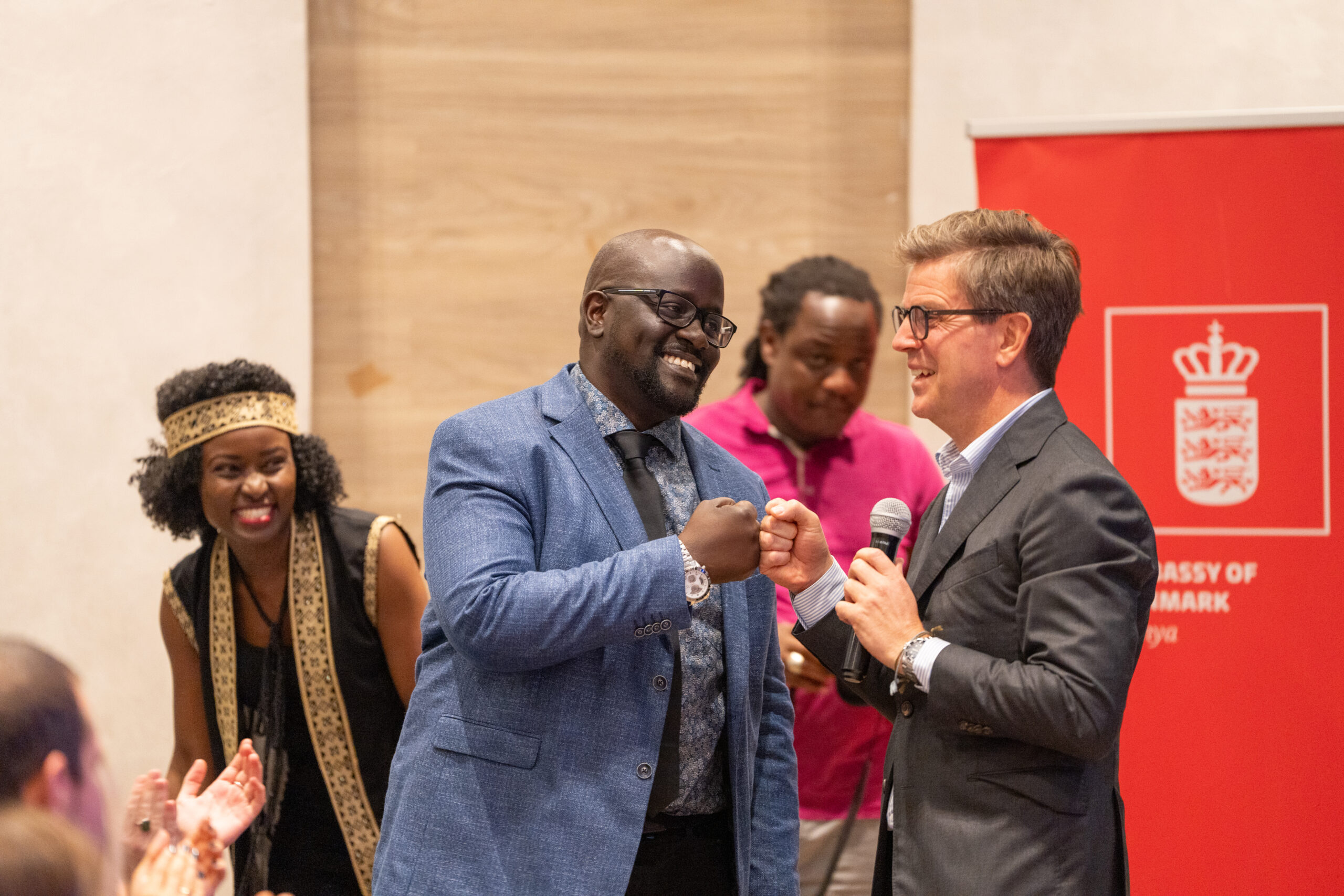 Confronting the Gaps in the Referral Pathways
Confronting the Gaps in the Referral Pathways
Lived experiences of gender-based violence survivors on their journey through the referral pathway to access justice and healing were shared. This inevitably allowed the survivors to reclaim their voices, thus breaking through from the narratives that have perpetuated their silence, but also highlighted systematic challenges, especially regarding access to justice.
“Sexual and gender-based violence is a deeply traumatizing violation. Many victims are embarrassed to report, therefore low reporting does not imply that it does not occur. We need to change the conversation and ask ourselves why this is not happening,” says Ms Roselyn Mukabana, Gender Based Violence Coordinator for Nairobi County, reporting on the low reporting rates of GBV violations.
“We need an empathetic lens that allows victims to navigate the criminal justice system with dignity. We have therefore developed a new curriculum that examines gender-based violence from a more victim-centred, trauma-informed, and intelligence-led perspective,” says Ms Nderitu.
“The investigator is well trained, and the criminal justice system will give ample time for investigations,” she continues emphasising that the national police service was working to improve the quality of service provided.
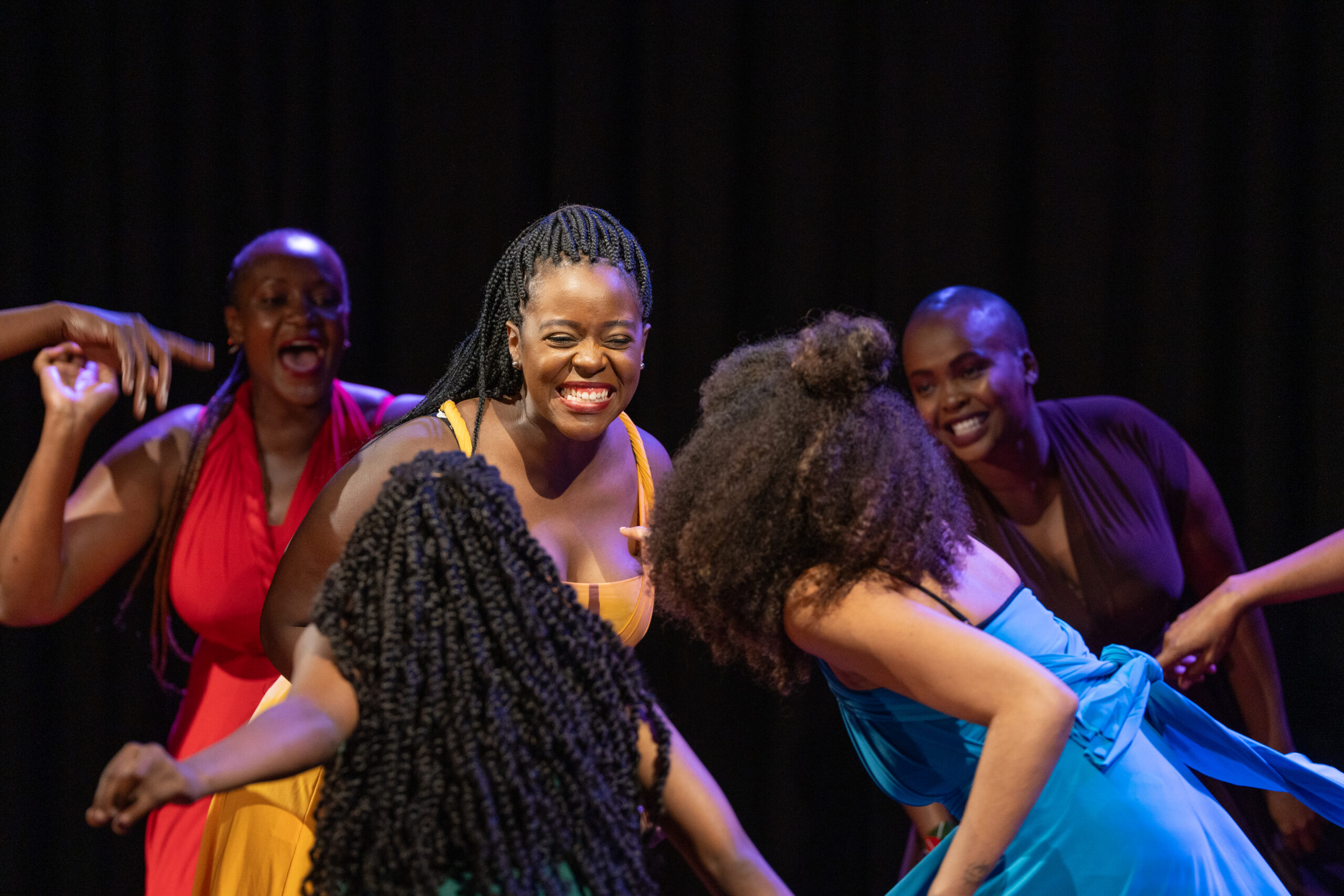 Sustained Action
Sustained Action
As part of the process of identifying solutions and encouraging action, conversations regarding promoting education have also emerged.
“The gaps that we have put into widening the road to justice is what we are unlearning, it is what we are adjusting, and that is why we are rolling out a victim-centered curriculum to all our training institutions because a well-informed police officer will be at a better place to help,” said Ms Nderitu.
The playwright’s deliberate muting of male voices in the play emphasizes the significance of amplifying women’s voices in a story dominated by male perspectives, as well as bringing to light power inequalities and cultural expectations that can perpetuate gender stereotypes and violence against women.
“We rescue men from men, because issues like intimate partner violence for instance, stem largely from men believing that they have power and control over women,” said Mr Ken Otina, Director of Masculinity Institute of Kenya, an organization that works to promote men’s voices on a variety of issues such as gender-based violence. He underlined the importance of both genders to listening to one another.

